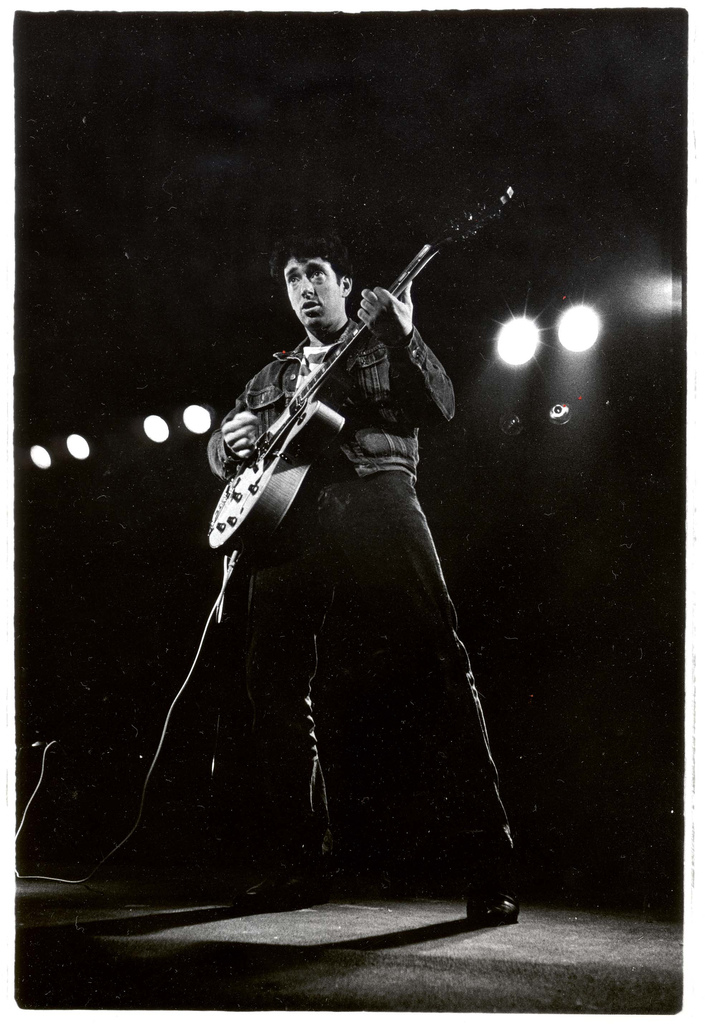https://open.spotify.com/playlist/7JoikWz5i62uwvidMTjRuM– playlist
In a dizzying era of hedonism and bloated art-rock, Jonathan Richman’s music was “A Plea for Tenderness.” Finding joy in little pleasures is a cornerstone of Richman’s lyricism. “New England” celebrates Maine’s magnificence just as the sweet, nostalgic wonder of ice cream trucks is reminisced upon in “Ice Cream Man.” Richman is a simple joy: acutely and endearingly corny and lovestruck.
Jonathan Richman and his early band, The Modern Lovers, were a bridge between the urban noir Velvet Underground and the in-your-face aggressiveness of bands like the Germs. Most importantly, Richman was an affable face within the burgeoning punk rock genre. His “oddball with a guitar” look was both authentic and approachable to the broader public. The explosive art-rock of the time was enamored with drugs and boozy guitar solos. Sex and drugs simply did not appeal to Richman. Instead, he chose to exalt the world around him. “I’m Straight” is a ballad against all things considered hip at the time. And Richman admits that he would prefer having no girlfriend at all to an inauthentic connection in “Someone I Care About.” His confessional, raw lyrics are a rebellion against rebellion.
Richman spent much of his adolescence adoring and emulating Lou Reed. In a 2014 radio interview, he described his attention and fascination with the Velvet Underground as “life or death.” He conversed with Lou Reed in Harvard Square, followed the Velvets to New York, and eventually became a regular face in Warhol’s Factory. Richman even wrote a song about his admiration for Reed’s band, “Velvet Underground.” Unlike the Velvets, who often exposed the social underbelly and flirted with substances in their craft, Richman had a different type of candidness. He gravitated towards the light and joy in life. His innocence was adored. Even the typically cynical Lou Reed enthused: “I love Jonathan Richman. There’s something about Jonathan.”
Like his idol, Lou Reed, Richman was raised Jewish. His lyrics are a reflection of Jewish culture and virtues. Richman would often preface his performance of “Hospital” with “Someone once asked me recently if I understood the Jewish Princess concept [a stereotype portraying Jewish women as entitled] and in evidence I told them how I wrote this song.” Richman has performed in Hebrew as well as English, with an equally sunny disposition. His duet with Israeli poet Roy Chicky Arad is unadorned yet exquisite in its potency.
If everyone who bought the first Velvet Underground album started a band, everyone who saw the Modern Lovers live picked up a guitar. Quirky dance moves and true passion make Richman’s music “magic, yet universal.” The best part is that his stage presence is all real. Nothing about Johnathan Richman is trying to be something he is not. This can be viewed first-hand by viewing his live YouTube performances. This version of “I Was Dancing in the Lesbian Bar” and this rendition of “Pablo Picasso” are fantastic places to start.
Israel is the holy land across many religions and the homeland of the Jewish people. Though Judaism is not a focal point of Richman’s art, it was here, in “old Israel’s arid plains,” (a lyric from New England) where Richman was struck with divine inspiration. His bandmate, John Felice, attests that while “standing in the desert” of Israel, Richman felt “he had to start a band.”
Today, Richman’s verve and warmth are still felt in his acoustic concerts. The modern day indie rock and punk genres owe much inspiration to his vision. Super acts such as The Sex Pistols, David Bowie and Siouxise, and the Banshees have credited him as an inspiration and paid tribute to his music.
Richman and The Modern Lovers are all about the feel and never about the touch: exualting emotional grace over sexual pleasure. Jonathan Richman feels like summer. Summer parties, summer love, summer heat and summer abandon. He is “That Summer Feeling.”

